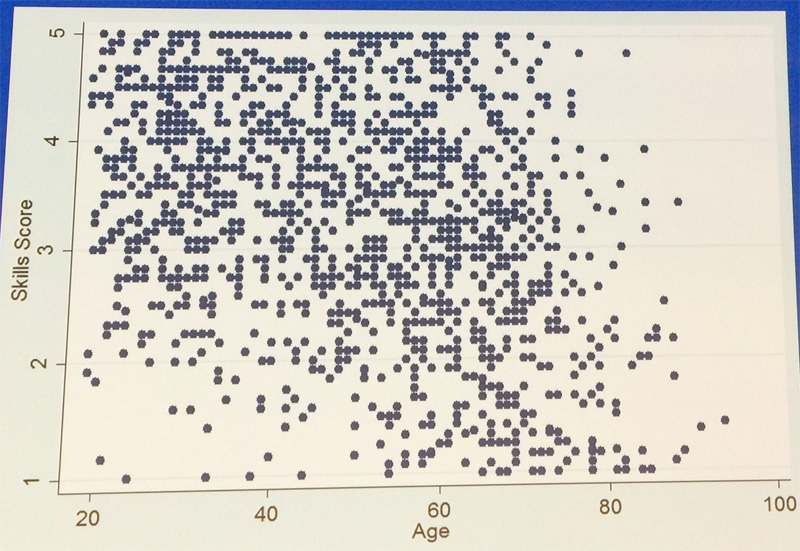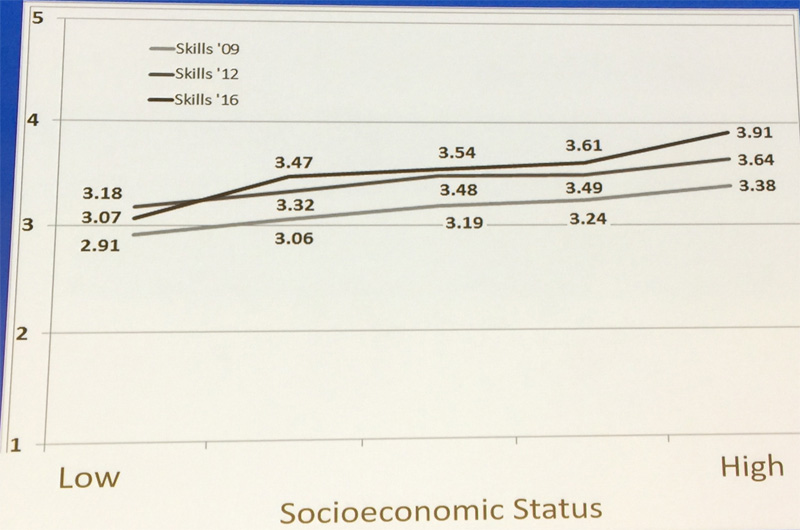It is hard to resist the pleasure I experienced during the Keynote given by Esther Hargittai (Zurich Polytechnic School) on the second day of the RecSys 2019 conference (Copenhagen, Denmark). Her presentation on inequalities between individuals in the digital world was brilliant and humorous.
So I had to prepare a post on a subject that is more important than ever: Our digital skills. On what do they depend? How are they measured? How can we influence them?
All these questions and many others were addressed in an entertaining keynote that also dispelled several myths. In today’s post, I suggest that you consider a persistent generational myth: that young people are more gifted with technology than adults.
As you will be able to discover, the reality is much more nuanced than that, and it reassures me that not everything is lost for the elderly ( including myself). Also, remember the message of hope that I wanted to convey at the beginning of the year, on the skills that will prevent you from being replaced by artificial intelligence.
How to measure the digital skills of individuals?
In her latest book (“Internet skills and why they matter“, 2019) Esther Hargittai and Marina Micheli dispel this myth that is well established in our post-modern societies.
How can we assess the digital skills of individuals, you may ask me? First of all, we must define what these digital skills are, and this is precisely the starting point for the work of the two authors who use a quantitative questionnaire to evaluate:
the respondent’s knowledge of the possibilities offered by digital tools
- awareness of what is possible
- effective ways of communicating with others
- the ability to find and evaluate information
- knowledge about seeking assistance
- the ability to create and share content
- understanding and managing privacy
- knowing how to stay safe and secure
- managing one’s online reputation
- handling information overload
- understanding how algorithms influence what people see
The digital skills of individuals do not depend on age
The graph below shows the evaluation of numerical skills (in ordinates) as a function of age (abscissa). As you can see, it is difficult to see a trend emerging, let alone calculate a correlation coefficient. This graph, therefore, dispels the generational myth we mentioned in the introduction: young people are not statistically more competent than their elders in the digital world.

What do digital skills depend on?
The answers to this question are one of Esther Hargittai’s research areas. There is therefore not an answer but answers (as is often the case in the academic world). In other words, our digital skills are the result of the influence of multiple factors. The socio-economic level plays a significant role in this respect. Dealing with this subject would be beyond the scope of this post, so I would like to comment on the graph below. Numerical skills are represented here according to the socio-economic status of the respondent and the correlation between this status, and these consequences are clear. Differences between the different status levels do not disappear over time. The survey has been repeated over time (1st survey in 2009, the second survey in 2012, the last survey in 2016), and the results clearly show the same differences.

To finish up
I want to conclude by reminding you that the individuals behind the investigations can have all kinds of activities, including those of entrepreneurs. When we know that digital activities are a central aspect of business growth and survival, we understand how essential it is to train and educate entrepreneurs with the most limited digital skills. The continuation of companies depends on it.
Posted in Research.